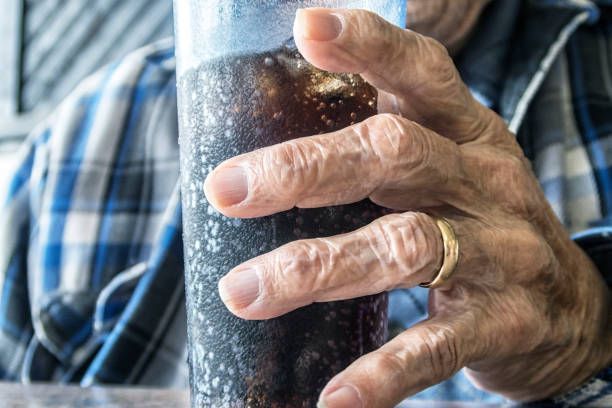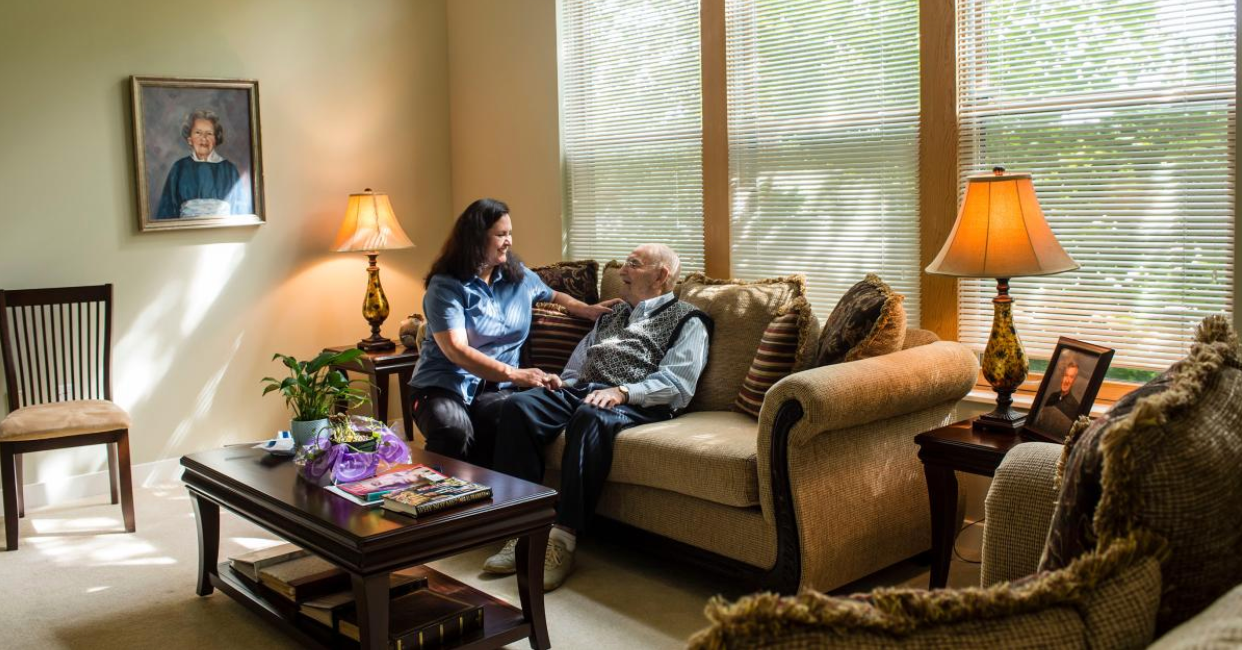The Hidden Dangers of Sugar
The Hidden Dangers of Sugar - Is Sugar Bad for You?
Yes, sugar can be harmful when consumed in excess. While small amounts of sugar are not inherently bad, too much added or refined sugar is linked to serious health risks, including obesity, type 2 diabetes, heart disease, and inflammation. What counts as "moderation" varies from person to person, as individual factors like age, metabolism, activity level, and existing health conditions all affect how the body processes sugar. This means the same amount of sugar can impact people differently, making it important to monitor intake based on personal health needs.
How Do I Know if My Sugar Intake is Too Much or Problematic?
You can determine whether your sugar intake is moderate or problematic by paying attention to both your body’s signals and your overall dietary patterns. If you experience signs such as increased hunger, weight gain, irritability, fatigue, digestive discomfort, frequent headaches, or persistent cravings for sweets, these may indicate excessive sugar consumption. Additionally, if added sugars are displacing nutrient-rich foods in your diet, or if you notice symptoms like frequent urination, increased thirst, or trouble concentrating, it could be a sign that your sugar intake is too high.
While the human body needs some form of glucose for energy, consuming too much added sugar—the kind found in soda, candy, baked goods, and many processed foods—can have serious health consequences. Numerous studies have linked high sugar intake to obesity, type 2 diabetes, heart disease, liver disease, and cognitive decline, especially when consumed regularly over time. Unlike natural sugars found in fruits and dairy, added sugars provide empty calories with no essential nutrients, which can lead to weight gain, insulin resistance, and chronic inflammation - factors that significantly increase disease risk.
For example, a landmark study published in JAMA Internal Medicine in 2014 titled: “Added Sugar Intake and Cardiovascular Diseases Mortality Among US Adults” shows that individuals who consume 17–21% of their daily calories from added sugars have a 38% higher risk of dying from cardiovascular disease compared to those who limit intake to 8% or less. Excess sugar can also disrupt hunger hormones, cause energy crashes, and accelerate aging through oxidative stress and cellular damage. Most health authorities - including the CDC and American Heart Association—recommend that adults consume no more than 6–9 teaspoons of added sugar per day, yet the average American consumes nearly three times that amount. In summary, excessive intake of sugar is clearly linked to multiple chronic conditions and should be limited for optimal health and longevity.

Excessive Added Sugar is Linked to Obesity, Type 2 Diabetes, Heart Disease, and Inflammation
Sugar is nearly impossible to avoid in today’s diet—it’s not only in obvious treats like cookies and soda, but also hidden in everyday foods like salad dressings, breads, and low-fat yogurts. While natural sugars in fruits and dairy are part of a healthy diet, added sugars—those introduced during food processing—can lead to serious health risks, especially for older adults. Excessive added sugar intake is linked to obesity, type 2 diabetes, heart disease, and inflammation, making it essential to read labels and choose whole foods whenever possible.
For seniors and their families, understanding sugar’s long-term health effects is essential for maintaining vitality, preventing chronic conditions, and supporting a longer, healthier life. At 7 Day Home Care, we’re committed to helping our clients make informed decisions about diet and wellness. In this guide, we’ll explore how too much sugar impacts the aging body and how to reduce it safely and sustainably.
What Is Added Sugar and Why Is It a Problem?
Added sugars are any sweeteners added during food processing or preparation to enhance flavor, texture, or shelf life. These sugars are not naturally occurring in whole foods and can contribute to health risks when consumed in excess. Common types of added sugars include:
- High-fructose corn syrup (commonly found in soft drinks, baked goods, and processed snacks)
- Table sugar (sucrose)
- Brown sugar
- Cane sugar or cane juice
- Honey (when added to packaged or processed foods)
- Molasses
- Agave nectar
- Maple syrup
- Corn syrup
- Malt syrup
- Rice syrup
- Fruit juice concentrates
- Evaporated cane juice
- Dextrose
- Fructose
- Glucose
- Lactose (when added, not naturally occurring)
- Maltose
- Invert sugar
- Raw sugar
- Turbinado sugar
- Crystalline fructose
- Syrup solids
Unlike natural sugars found in whole fruits and milk—which come packaged with essential nutrients like fiber, vitamins, minerals, and antioxidants—added sugars offer nothing but empty calories. These refined sugars, commonly found in sodas, candies, baked goods, and processed foods, are stripped of any nutritional value. When consumed, they rapidly spike blood glucose levels, leading to sharp insulin responses that disrupt the body’s metabolic balance. Over time, this can contribute to insulin resistance, increased fat storage (especially visceral fat), and heightened risk of conditions like type 2 diabetes, heart disease, and fatty liver. Because added sugars bypass the satiety signals that whole foods trigger, they can also promote overeating and chronic cravings, making them particularly harmful to both short- and long-term health.
According to the Centers for Disease Control and Prevention (CDC), added sugars account for over 13% of daily calorie intake in U.S. adults, far exceeding recommendations.
What is the Difference Between Added or Refined Sugar and Natural Sugar Found in Whole Foods?
The difference between added or refined sugar and natural sugar lies in how the body processes them and the health impact they have. Added or refined sugars are extracted and processed—commonly found in sweets, sodas, and processed foods—and lead to rapid spikes in blood glucose, which can increase the risk of type 2 diabetes, obesity, and heart disease. In contrast, natural sugars are found in whole foods like fruits, vegetables, and dairy, and are absorbed more slowly because they’re paired with fiber, water, and nutrients. When natural sugar is consumed with fiber—such as in a whole apple—the fiber slows digestion, stabilizes blood sugar levels, and supports gut health, making it a healthier and more balanced source of energy.
Recommended Sugar Intake for Seniors
The American Heart Association recommends:
- Men: No more than 9 teaspoons (36 grams) of added sugar per day
- Women: No more than 6 teaspoons (24 grams) per day
Yet, the average American consumes 17 teaspoons daily, primarily from sugary drinks, baked goods, and processed foods. For older adults, who may have a slower metabolism, reduced physical activity, and chronic conditions, this excess can be especially harmful.
Is Sugar Addictive?
While sugar isn't addictive in the same way as substances like nicotine or alcohol, it can create tremendous patterns of craving and overconsumption that feel very similar to addiction. When you eat sugar, your brain releases dopamine in reward pathways, which can reinforce the desire to seek out sweet foods again. Some people do experience withdrawal-like symptoms when they drastically reduce sugar intake, such as irritability, fatigue, or strong cravings. However, these effects are generally milder and shorter-lived than what occurs with true addictive substances.
The scientific consensus is that while sugar can be habit-forming and trigger compulsive eating behaviors in some people, it doesn't meet the clinical criteria for addiction. The term "sugar addiction" is more of a colloquial way to describe intense cravings and difficulty moderating intake.
Individual responses vary significantly - some people can easily moderate their sugar consumption, while others struggle with controlling their intake of sweet foods. Factors like genetics, stress levels, sleep patterns, and overall diet all influence how your body responds to sugar. If you're concerned about your relationship with sugar, focusing on gradual reduction rather than complete elimination, eating regular balanced meals, and addressing underlying factors like stress or poor sleep can be more effective than thinking about it in addiction terms.
The Link Between Sugar and Heart Disease
One of the most well-documented risks of excessive sugar intake is cardiovascular disease. Harvard Health Publishing cites a pivotal study published in JAMA Internal Medicine found that individuals consuming 17–21% of their calories from added sugar had a 38% higher risk of dying from heart disease than those who limited it to 8% or less.
Why is sugar so damaging to the heart?
- Fatty Liver Development: Excess sugar, particularly fructose, is metabolized in the liver and stored as fat. Over time, this can cause nonalcoholic fatty liver disease, a risk factor for heart disease.
- Increased Blood Pressure & Inflammation: Sugar elevates chronic inflammation and blood pressure—both contributors to heart disease and stroke.
- Weight Gain and Visceral Fat: Sugary drinks and snacks bypass satiety signals, leading to overeating and accumulation of dangerous abdominal fat.
Sugar and Type 2 Diabetes
Contrary to popular belief, sugar doesn't directly cause diabetes - but it plays a major indirect role. Diets high in added sugar:
- Promote obesity, the leading risk factor for type 2 diabetes
- Trigger insulin resistance, where cells no longer respond properly to insulin
- Lead to blood sugar fluctuations, putting stress on the pancreas over time
A 2022 systematic review in Nutrients confirmed that regular intake of sugar-sweetened beverages was linked to higher type 2 diabetes risk, even among those with otherwise normal body weight.
For seniors already managing diabetes, sugar intake must be tightly controlled. Blood sugar imbalances can lead to dangerous complications, including vision loss, neuropathy, and kidney damage.
Sugar and Cognitive Decline: A Risk for Alzheimer’s or Dementia?
Emerging research is uncovering alarming connections between sugar intake and brain health, particularly in relation to Alzheimer’s disease.
A study published by Johns Hopkins Medicine in 2022 identified a sugar-coated protein that may interfere with the brain’s ability to clear beta-amyloid plaques, a hallmark of Alzheimer’s. Another long-term study published in the New England Journal of Medicine found that even modest increases in blood sugar levels were linked to increased dementia risk—even in non-diabetics.
Key mechanisms include:
- Insulin resistance in the brain: Sometimes called “Type 3 diabetes,” this affects memory and learning
- Chronic inflammation: Sugar promotes systemic inflammation that damages brain tissue
- Oxidative stress: Sugar metabolism increases free radicals that age the brain
While more studies are needed, the evidence strongly supports sugar reduction as part of a brain-healthy lifestyle for older adults.
Does Sugar Feed Cancer? What the Science Says
There's a common myth that "sugar feeds cancer." The truth is more nuanced—but there is growing evidence that sugar plays a role in cancer development and progression.
According to Cancer Research UK and studies from Memorial Sloan Kettering, sugar doesn’t directly cause cancer, but it:
- Increases obesity, a major cancer risk factor
- Promotes inflammation and insulin resistance, both of which can support tumor growth
- Alters cellular metabolism, encouraging certain cancer cells to thrive
One study in Frontiers in Nutrition (2023) found a link between high intake of sugary drinks and increased risk of pancreatic, breast, and colorectal cancer.
The Bottom line: Reducing sugar is a smart cancer prevention strategy, especially for those with other risk factors.
Sugar and Aging: More Than Just Wrinkles
Too much sugar doesn't just affect internal health—it can accelerate visible aging. Here’s how:
- Advanced Glycation End Products (AGEs): These harmful compounds form when sugar binds to proteins, damaging collagen and elastin. The result? Premature skin aging and loss of elasticity.
- Telomere Shortening: Telomeres are protective caps at the ends of chromosomes. Research shows that high sugar intake shortens telomeres, accelerating cellular aging and disease susceptibility.
- Energy Fluctuations: Sugar highs are followed by crashes, leading to fatigue, irritability, and lower physical activity.
For seniors striving to maintain vitality, minimizing sugar can support both appearance and energy.
Where Is All the Sugar Coming From? Hidden Sources of Sugar to Watch
According to the CDC, the top sources of added sugars in the U.S. diet are:
Sugar-sweetened beverages – 42.2%
Grain-based desserts – 11.9%
Fruit drinks – 8.5%
Dairy desserts – 5.5%
Candy – 5.0%
Hidden sugar culprits are foods that may seem healthy or harmless but often contain significant amounts of added sugar. These hidden sources can quickly add up, especially for individuals managing diabetes or trying to reduce sugar intake. Common hidden sugar culprits include:
- Flavored yogurts (even “low-fat” or “fruit-on-the-bottom” varieties)
- Granola bars, protein bars, and energy bars
- Breakfast cereals, including those labeled as “whole grain” or “heart healthy”
- Salad dressings, especially sweet vinaigrettes and low-fat versions
- Ketchup, barbecue sauce, and other condiments
- Canned soups and stews
- Jarred pasta sauces and marinades
- Frozen meals and entrees
- Bottled smoothies and fruit juices
- Coffee creamers and flavored lattes
- Nut butters with added sugar (like flavored peanut or almond butter)
- “Healthy” snacks like trail mix, dried fruit, or veggie chips
- Breads, wraps, and hamburger buns
- Crackers and rice cakes
- Instant oatmeal and flavored hot cereals
Reading Food Labels: What to Look For
The FDA now requires food manufacturers to list “Added Sugars” separately on Nutrition Facts labels.
When reading labels:
- Aim for products with 0–5g added sugar per serving
- Watch for ingredients ending in “-ose” (glucose, sucrose, fructose)
- Limit products with multiple sugar sources listed
Even small reductions across several products can have a major impact on overall intake. Always check the ingredient list and nutrition label—even “natural,” “low-fat,” and “organic” products can be loaded with hidden sugars under different names.
Strategies for Seniors to Cut Back on Sugar
Reducing sugar doesn’t mean giving up all enjoyment. Try these senior-friendly strategies:
Beverage Swaps
- Replace soda and with water, sparkling water, or unsweetened tea
- Gradually reduce sugar in coffee
Smarter Meals
- Choose plain yogurt with fresh fruit, seeds, and nuts over flavored versions
- Pick cereals with less than 4g of sugar per serving, or really none at all
- Cook at home more often, using a variety of herbs and spices instead of processed sauces
Grocery Tips
- Shop the perimeter of the store for fresh, whole foods
- Use the “no more than 5 ingredients” rule for packaged items, or refrain from processed foods all together
- Don’t be fooled by terms like “natural,” “organic,” or “healthy” — always check the label
Reshaping your thinking about avoiding added sugars begins with shifting your mindset from deprivation to liberation. At first, the idea of cutting out sugary foods may feel restrictive, but as your taste buds adapt and your palette resets, you begin to appreciate the natural sweetness in whole foods like fruits, nuts, and vegetables. Over time, cravings fade, and what once seemed like a sacrifice becomes a source of strength and clarity. You realize you’re not missing anything—you’re gaining energy, mental sharpness, and control. The grip of sugar loosens, and in its place comes a deep satisfaction from nourishing your body with real, unprocessed food.
How 7 Day Home Care Helps Seniors Manage Nutrition
At 7 Day Home Care, we believe that nutrition is the foundation of healthy aging. Our trained caregivers help clients make better dietary choices through:
- Meal planning & grocery assistance
- Medication management for those with diabetes or insulin sensitivity
- Label reading education and support
- Encouraging healthy food habits while respecting client preferences
Whether it’s reducing added sugar or managing a chronic condition, our care team provides the support needed to create lasting change.
Final Thoughts: Less Sugar, More Life
The research is overwhelming: too much added sugar contributes to a wide array of chronic health problems—from heart disease and diabetes to cognitive decline and even cancer. For older adults, these risks are amplified, making sugar reduction a vital part of healthy aging.
Fortunately, small, consistent changes can lead to meaningful improvements in well-being, energy, and longevity. Whether you're a senior, a family caregiver, or a healthcare provider, taking steps to understand and limit added sugars is one of the most impactful decisions you can make.
Need Help Managing Nutrition at Home?
7 Day Home Care provides low cost private pay in-home care services and is an approved provider under many insurance policies, including your long term care insurance policy - throughout NYC -Manhattan, Queens, Brooklyn, and Long Island, New York. To learn more about our award winning home health aide care services and how our caregivers can support healthy aging through personalized, compassionate care, please call 516-408-0034 to schedule your free consultation.
Brian Callahan
7 Day Home Care










